
This is a snippet from my book, All Across The Spectrum. You can order on Amazon as a Kindle or Hard Cover version —> here.
Autism and grieving: It’s okay to grieve
When my therapist said those words, “It’s okay to grieve,” I felt like a weight had been lifted off my shoulders. The guilt that had been torturing me for years started to fade away. My feelings were normal, after all. Dr. Robble explained that all the parents of severely autistic children she sees have similar feelings. They feel powerless, defeated, frustrated, and depressed. I’ve felt all these emotions. I’d kept them to myself for a while because I was ashamed of feeling this way. I was afraid to admit these feelings, even to my husband. I love my little boy, my Charlie, so the sadness that engulfed me at that moment was confusing. For a long time, I buried it. I never mentioned it, particularly on my blog knowing there, I’d be open to criticism. People on the internet were already critiquing me, so sharing that I was grieving the child I thought I was going to have would have been like offering myself up on a silver platter.
The truth is that raising a nonverbal autistic child is emotionally draining. I wish I could say that I was strong enough that Charlie’s severe impairments didn’t affect me, but I’m not. It breaks my heart to see Charlie struggling daily. It’s hard for Charlie, who can’t communicate beyond basic needs such as “I want water,” but it’s also hard on us, his parents. When Charlie was diagnosed, many dreams went out the window. My expectations and everything I’d imagined doing with my child were gone. I once dreamed about having philosophical discussions with Charlie and long talks about soccer, outer space, and life in general. I now long to hear him call me “mommy” or say “I love you,” purposely, even once.
Besides very basic needs, which he conveys using an app on his iPad, Charlie cannot make himself understood. It’s like that recurring nightmare where you’re in danger, and you’re screaming with all your might, but no sound comes out. I used to have that nightmare all the time as a child. That feeling of powerlessness is paralyzing. I wonder if sometimes Charlie feels powerless. As his mom, it’s my job to protect him and I want to make things easier for him, I want to help. I want to fix his inability to communicate. I don’t want to fix him. I want to fix his broken voice. I wish someone would invent some brain decoder that would allow me to understand him and make it all better because that’s what moms do. We make it better. But I can’t. Grieving something means realizing you can’t change it. I’m grieving my inability to encourage my child’s development like other mothers can do.
When Charlie needs something and I’m unable to understand what it is, I feel powerless. I usually spend a few minutes showing him various objects and food items around the house in hopes that he’ll want one of them. When I’m wrong—and that happens often—he gets frustrated.
Cereal? Pushes it away.
Juice? Pushes it away.
Toast? Pushes it away.
Yogurt? Pushes it away.
You can feel the intensity of our growing frustration as I fail to comprehend what he wants to eat. He gets infinitely more impatient with each wrong guess. The restlessness, the grunts, and then the quiet whines. Believe me, Charlie. I’m trying as hard as possible to get you what you want, but I can’t because I don’t know what it is. Eventually, we’ve exhausted all our options, and this is usually the moment when tears slowly start rolling down his face, and he resorts to screaming. I feel sad and frustrated, too. And once again, powerless. Once we’ve reached that point, there’s nothing else I can do. I’ve failed, and now we have to wait. I wait until I hear the silence. Not the kind of silence you want to hear. It’s a silence full of tension. A silence that means that Charlie has given up because that’s the only thing he can do. No matter how hard he tries, he can’t communicate, and he can’t make himself heard. The only thing he can do now is surrender.
Still, I love Charlie. All of him. The way he is. I simultaneously don’t want to change him and do. I’m not grieving him. I’m grieving my dreams of him. I’m grieving my dreams of Charlie as a seven-year-old sitting beside me outside at sunset, debating which Pokémon is a better starter option in Pokémon Blue. I’m grieving my youth, the naiveté that led me to believe that all moms get to hear their children call them mommy in a purposeful way, the innocence that tricked me into believing that all children love and cling to their parents. I’m grieving the dream of speaking French with Charlie and secretly laughing at the first putain he pronounces. I’m not grieving you, Charlie. I’m grieving my dreams.
A snippet of some of the responses I got from Neurodiversity advocates ake #ActuallyAutistic since posting this. What’s so horrible about autism and grieving? Grieving your dreams? What’s so horrible about not wanting your child to struggle and put himself in danger constantly?

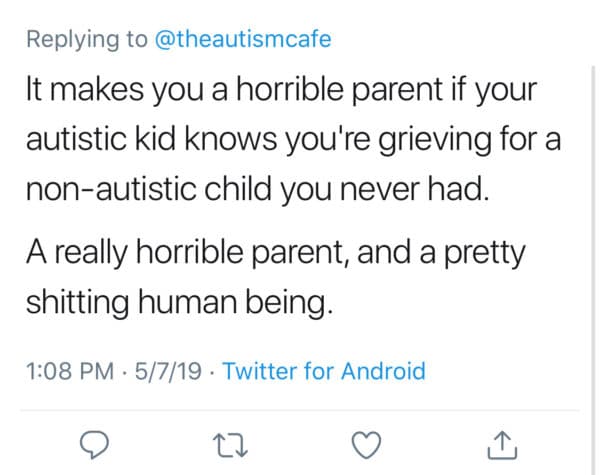
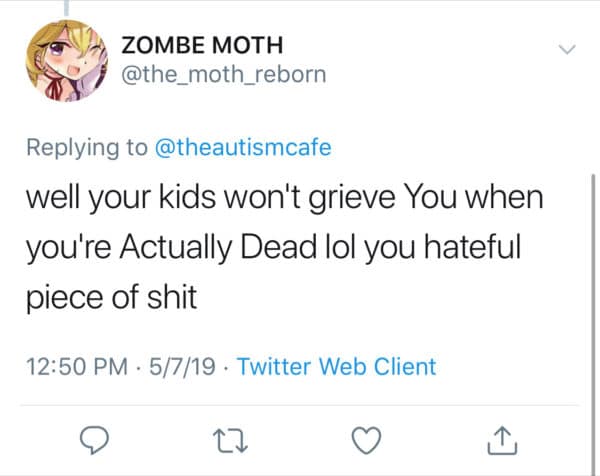


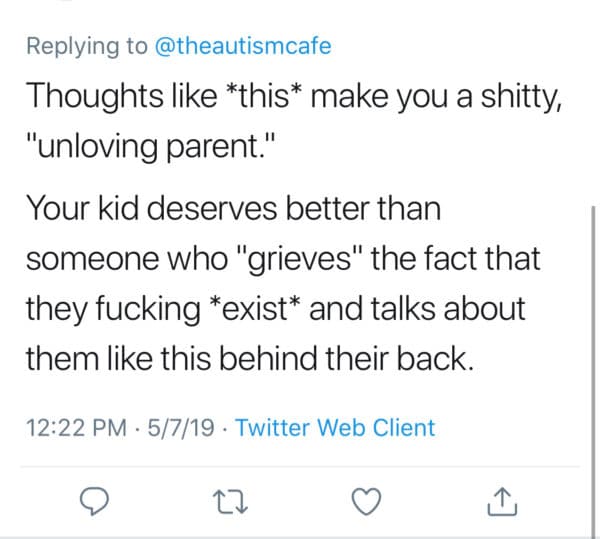
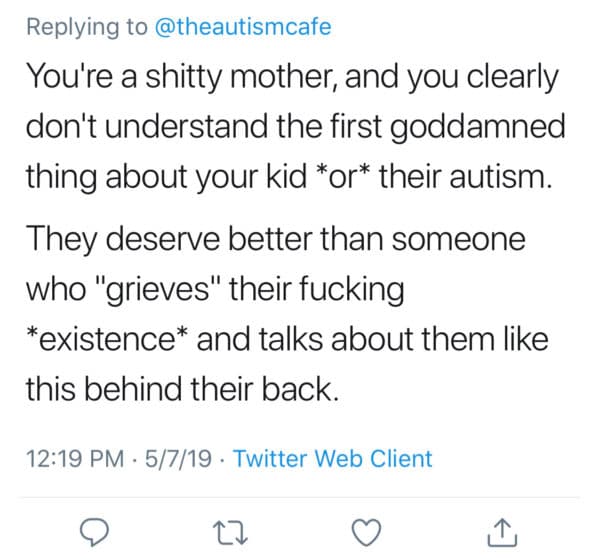
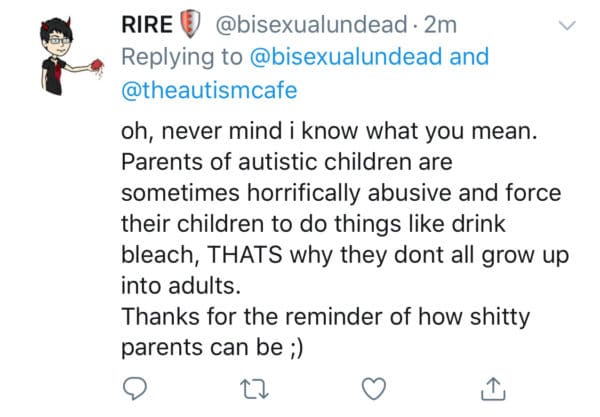

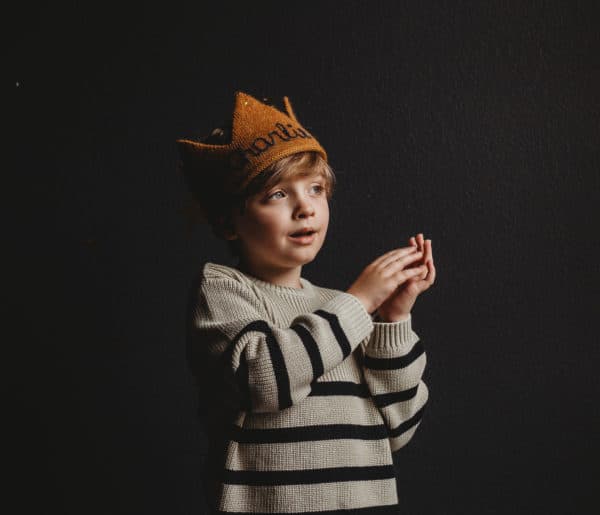
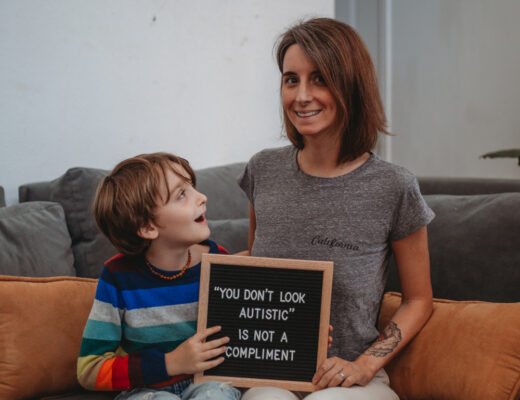

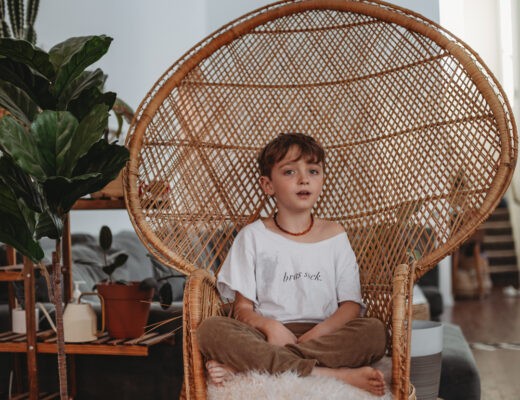
27 Comments
Emily Taylor
2019-05-07 at 8:54 PMI can totally relate to this post. Even though my daughter can speak, she is echolalic and has difficulty expressing what she really means. Special needs parenting is hard and we do grieve dreams. It’s human nature despite what those on the outside looking in believe. You are rocking this and help others feel less alone. I’m one of them. God bless and prayers for sweet Charlie.
Samantha
2019-05-08 at 12:54 AMI think this was incredibly brave of you. Thank you for sharing.
Holly
2019-05-08 at 12:59 AMMy son will be 22 this month. When he was nearly 3 years old, he regressed and lost his capacity to generate language. I grieved for years, but over time, my grief and distress abated and I learned not only to accept, but to find pleasure and insight in my son’s company, knowing that he will always be as he is. It’s true that we can’t converse in the conventional sense, but we share scripts that approximate conversation, which we use to affirm our mutual love and affection. I hope your grief abates over time. Parenting a significantly autistic person is hard work, and parents don’t deserve to have the daily challenge of providing care compounded by hostility from people whose experience of autism is vastly different from ours.
Mym
2019-05-09 at 6:47 PMIs it real all the negative and hateful comments you are leaving??? So, you are critiquing this mom for opening up and share what most parents won’t… I never read anything disrespectful or hateful towards the child, but here you are telling her she is a shitty mom and wishing her death!!?? Those people who wrote that are the one I PRAY TO GOD never get to become a parents!!! What king of monsters will you be raising?
I am a mother of two boys! With no special needs and sometimes I FEEL EXHAUSTED!!!!
So dear mom who wrote this: I applaud you!! You are doing great and I can’t even imagine how hard it is tuis situation! It is OK to feel that way and more to express it so we feel relieved!! I admire you so much and I can tell that you are a loving mother! Ignore the hateful comments! People speak the way they are inside… so it’s their problem, not your
Lorry Hill
2019-05-10 at 5:29 AMI think that the hateful comments all share a misunderstanding that you are saying you grieve Charlie’s existence rather than what you actually said ; you grieve the loss of the child you imagined you’d have. It’s very nuanced but an important difference. Many parents are told to grieve this loss.
Sehrish
2019-06-07 at 1:06 AMCruel comments…i believe you cant comprehend or relate unless you hv gone through a certain situation but again you dont comment such hateful comments on another person’s situation…may God bless n make things easy for you n charlie(he is so much like my son,it breaks my heart n sometimes i wish for that brain decoder too)
Maggie S
2019-07-19 at 2:24 PMHave you tried AAC? Low tech or high tech?
Eileen
2019-07-25 at 11:51 PMWe’ve tried everything, from PECS to Sign Language. He’s been using AAC (Proloquo) for 4 years and he can communicate basic needs such as “I want + item”.
Dorrie
2020-01-04 at 1:07 AMHave you tried the speak for yourself app? Our nursery school SLP used it and it was great! You can enter customized icons by taking photos or using clip art and the icons always stay in the same spot on the screen so once you learn a word, you can always know where to find it on the screen. We had a screen for emotions, another for food, another for toys and movie titles, it helped a lot with relieving anxiety/frustration and getting some sound approximations. Here is a review http://niederfamily.blogspot.com/2014/03/the-best-communicationaac-app.html
Eileen
2020-01-09 at 2:31 AMWe’ve been using a similar called Proloquo2Go. He can communicate basic needs such as “I want + item” but it’s often not enough to relieve its frustration.
Maggie S
2019-07-19 at 2:28 PMI mean, if the iPad isn’t working for him, there are so many other choices. There’s even a Facebook group, “Ask Me, I’m An AAC User!” that is just fantastic.
Eileen
2019-07-25 at 11:51 PMWe’ve tried everything, from PECS to Sign Language. AAC is our best option right now as he can communicate basic needs such as “I want + item”.
Charmaine Jones
2020-09-02 at 2:17 PMThank you for this post. It’s helps us autism moms not feel so isolated in our struggle! Appreciate your honesty and the reminder to celebrate the little victories we experience.
Christin
2021-01-27 at 9:58 AMI feel this now. I am grieving my dream for my 3 year old son. Actually our family dream. He was conceived through IVF after 7 years of waiting, finally my daughter’s pray to have a baby brother was answered! We were so excited. Everday my daughter will read stories since he was in my womb. We planned a lot of things.. until we realized he won’t respond when we call his name. He won’t wave, clap or imitate us. Then comes the meltdowns, the screaming, the hitting and biting. My daughter wonders how this is even possible? I can’t even explain WHY he has autism. Because i don’t know. Nor the pediatrics or the therapists. And the saddest part is that the sibling relationship she longed for so long, to play pretend together, doing sports together, talking together for hours and hours… has to be dissapeared. This breaks my heart the most. Thank you for your sharing, i also feel that if there is any way, i would do anything just to make him be able to communicate and not autistic.
Mimi
2022-06-26 at 1:58 AMI too am grieving my dreams for my almost 4 yr old daughter. She was also conceived through IVF. She is my only child, so I often grieve my dreams of what parenthood would look like.
Selena Pistoresi
2021-03-10 at 7:28 PMI appreciate the nuance you bring to this situation. I’m so sorry you’ve had to deal with hateful comments like that. As an NT professional who works with ND folks, it’s easy for me to get swept up in the neurodiversity movement to the point of black and white thinking or radicalization. I think it’s so important to acknowledge any emotions you’re experiencing as valid and ask what they have to teach you, even if others don’t agree that you “should” be having them.
I’m sure you’re not looking for advice and really have tried everything, but I’m wondering if you’ve tried RPM? I’m an RPM practitioner and also have a degree in psychology. I’m all too familiar with the FC fiasco and the fact that RPM doesn’t YET have a wealth of research to back it up, and I won’t say that it’s the answer to everyone’s prayers, but I’ve seen many autistic kids benefit from it and become completely independent communicators that way. If you focus on academics and building motor skills (pointing intentionally) without asking open-ended questions and all that message transfer nonsense, it might be great for Charlie. I’m actually a piano teacher but use RPM in my lessons all the time, so I’m not here trying to promote myself or anything 🙂
Lisa
2021-03-12 at 2:07 PMEileen,
Just reading this post today. I grieve too, I’m with you and love your candid post. Thank you for this.
Mark Aaron Gillman
2021-04-02 at 5:03 PMI Read your words. The whole thing, not just enough to mis-understand, like some readers.
I have felt the same way, to myself. It was amazing to see someone else express this deep, sad, raw honest feeling, with love and dedication. Thank you.
Cheryl visher
2021-09-26 at 8:25 PMMy grandson is 9 years old .he is autistic and non verbal since the age of 3 .he is in a school that helps him and is recieving a machine to help him communicate .although we do not see each other very ofetn when we do he is excited to see me as well as im excited to see him .i understand everything he does .we have a very special close bond .although he msy never or shall i say he doesnt right now say iove you grandma his actions speak volumns .no words have to be spoken .i love him w all my heart and soul and no matter wheather he speaks or not .it doesnt matter .he is loved .
GoatsandRoses
2021-12-19 at 2:08 PMYour love for you son’s personhood shines though. Perhaps it’s hard for some people to comprehend the difference between rejecting your child’s intrinsic personhood (which you’re NOT doing) and wishing that your child had the abilities that might lead to an easier (and, I cautiously venture to say, safer) life for him. It’s all great and rosy and politically correct to say that a person is okay as his/she is (which is completely true on one level, and fine for those of us who can navigate this world with less severe forms of autism), but a parent like you has to deal with the hard REALITY of a child having a severe, life-long disability in this not-always-forgiving world. You LOVE your son. I only state the following hard truth to bring reality to future readers, not to make you face a painful fact again. Unfortunately, not everyone in this world WILL be kind to Charlie and those like him. You recognize that Charlie’s condition not only affects your current relationship with him, but makes him vulnerable in the future after you’re gone. I was in that situation, in a completely different context, at one time. I think it’s perfectly normal to grieve the situation in which this places him. He is lucky to have you as his mother, because I”m sure you will and probably have do/done all you can to protect his future. God bless you.
anonymous
2022-01-31 at 9:48 PMI’m sorry, but if you couldn’t accept a disabled child, you shouldn’t have had children. I’m not a parent, so I don’t know what it’s like to raise kids, but I am autistic and I know how horrid it feels for everyone around you to wish you were “normal”. Please just never let your children see this post.
Jenny
2022-03-25 at 3:33 PMAs far as those horrid comments condemning you for grieving, I hope you pay them no regard. Those commenters clearly lack empathy, and they probably can’t even help it. It is a defining characteristic of their condition.
I have an autistic son too and I grieved and grieved and have yet to make an enduring peace with it. It just hurts so much. I love him more than anyone or anything, but I would give anything to remove his autism. I know that’s not a popular thing to say in this age wherein the only acceptable sentiment Is “He is perfect just the way he is and wouldn’t change him even if I could.” I don’t believe it when parents of severely autistic kids say this, but I understand that they are making their desires and reality match. I understand the impulse. But why would I not want my son to have a fuller life, the ability to care for himself, to communicate effectively, to develop friendships and know romance? Of course I want that for him. If I didn’t, I would be a monster.
Thank you for your blog.
Claire Thrift
2022-06-16 at 10:46 AMThough my son is verbal, I too have grieved certain hopes for him. You’ve worded this beautifully – it’s a nuanced subject and I’m pretty sure that those trolling you aren’t parents of autistic kids themselves as those who are share an empathy of others, even if their opinions differ.
Gnana sezhian
2023-04-12 at 5:11 AMI share ur greiving eileen.. my son is 3.5 yrs old and it’s pains to see him making poor progress and a tragestory that is unpredictable.. thank u for sharing ur thoughts… May God help us
Claudia
2023-04-19 at 6:10 PMMy son just turned four last week. His diagnosis feels like yesterday. And I can’t talk about him without crying. I am glad we got an answer as to why the long nights as a baby when he did not sleep much and was told it was a phase. Thank you for sharing this; much needed as we adjust our lives and celebrate the small wins.
Evan
2024-04-17 at 8:59 PMHere because of a post in /r/aspergers highlighting how horrible autism cafes are for autistic people. How fun to stumble upon this. Apparently my mother grieved for me because I was autistic? I wonder if she grieved because I was gay, too; she didn;t really plan for that, either.
This article made me want to throw up. You should have never chosen to carry a child to term if you were looking for a doll to dress up and parade around.
You don’t meet the standards of a mother. You have nothing to grieve.
Adam
2025-01-16 at 1:51 AMI guess my input is like many others – amazement at how people can misread what it means to grieve a child that cannot live a fully independent life. ” I’m not a parent, so I don’t know what it’s like to raise kids” – that, right there, shows the lack of understanding inherent in the negative conclusion.
As the parent of a 9 year old nonverbal autistic child, with all the different therapies, medications, tools, and what-not, I too understand what the original post is saying. I grieve as well. How can you not, when you see other children the same age doing all the things that children “normally” do? With reminders nearly every day of what your child is unable to do? That when other kids are playing with friends, you are still busy making sure all the door locks are set so that your child doesn’t wander off and get hit by a car or drown? That you can’t hear what your child is thinking about or what is important to them? Grief, in this situation, is on their behalf for what is lost, and for the possibility of future difficulties you fear your child will have to endure. And yes, there is also grief for one’s own future: the loss of sleep, the ever-constant vigilance to prevent the child from harming themself (which just increases as they get older, stronger, and able to undo more types of locks), the realization that this child may live with you the rest of your life because they will never be able to become fully independent, and on and on.
Grief is important to allow to pass through us, as we continue our efforts to love our child for the person they are, to be accepting of whatever they do or do not become in this life. Whenever I feel like I’ve made peace with things, life moves on, kids grow older, and yet another life event (or lack thereof) slaps me once more in the face.